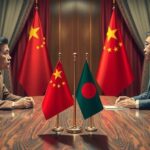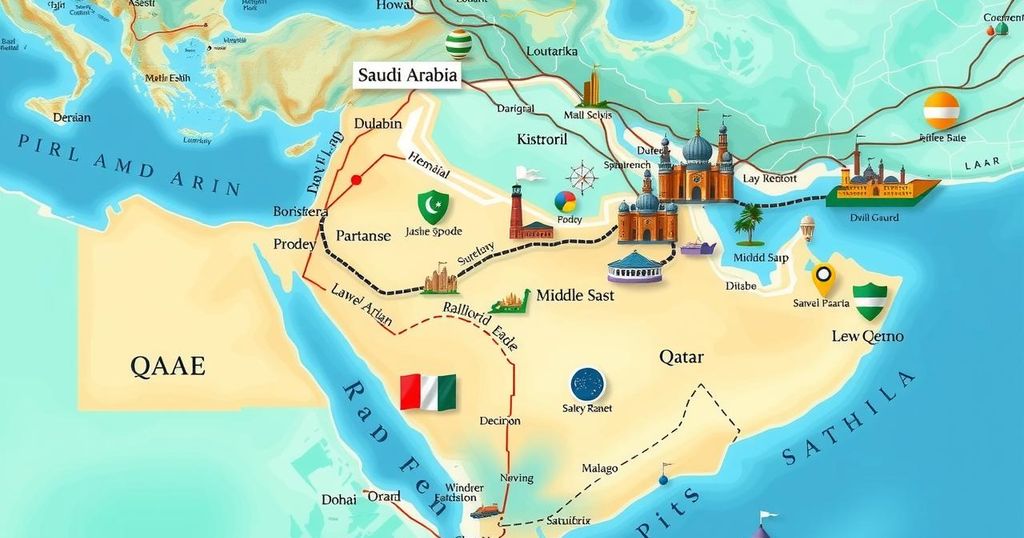Politics
AHMAD, ARAB NEWS, ASIA, AZ, AZAD MAJUMDER, BANGLADESH, BEIJING, BILATERAL COOPERATION, BILATERAL RELATIONS, BILATERAL TRADE, BOAO FORUM FOR ASIA, CHINA, CHINESE ECONOMIC ZONE, DHAKA, HAINAN, HAS, INDIA, INFRASTRUCTURE PROJECTS, MEXICO, MU, MUHAMMAD YUNUS, MUNSHI FAIZ AHMAD, NEW DELHI, NORTH AMERICA, SHEIKH HASINA, TRADE, XI, XI JINPING, YUN, YUNUS
Nia Simpson
Muhammad Yunus Embarks on First State Visit to China to Strengthen Economic Ties
Muhammad Yunus, head of Bangladesh’s interim government, has undertaken his first state visit to China, meeting President Xi Jinping and attending the Boao Forum for Asia. The visit aims to enhance economic cooperation, focusing on attracting investments and addressing healthcare needs. This shift occurs amid cooled relations with India, highlighting the importance of strengthening ties with China.
Muhammad Yunus, the head of the interim government of Bangladesh, has departed for his inaugural state visit to China. His agenda includes a meeting with President Xi Jinping and participation in the Boao Forum for Asia in Hainan. This visit is pivotal as it marks Yunus’ first bilateral engagement since becoming chief adviser in August 2024.
The focus of this diplomatic visit is on enhancing economic cooperation. Azad Majumder, Yunus’ deputy press secretary, indicated that several memoranda of understanding (MoUs) are anticipated, primarily addressing economic collaboration. Investment attraction from China, specifically in the designated Chinese Economic Zone in Bangladesh, will be a central topic of discussion during this meeting with Xi.
The choice of China for Yunus’ first state visit signifies an important shift in diplomatic ties, particularly as Bangladesh’s relations with India have deteriorated post-government transition. Munshi Faiz Ahmad, a former envoy to Beijing, emphasized that this presents an opportunity for Bangladesh to strengthen ties with China, creating mutual benefits in various sectors.
In addition to economic discussions, Yunus is expected to advocate for increased Chinese investment in healthcare, aiming to establish a substantial hospital in Bangladesh. This initiative seeks to mitigate the reliance of Bangladeshis on medical tourism to India amid recent visa difficulties. Huayun Kabir, a former Bangladeshi ambassador, noted that China has shown interest in aiding medical infrastructure through a proposed grant of $138 million.
Furthermore, Yunus’ administration seeks to attract investments to also support the national budget. Economic zones specifically created for Chinese investors demonstrate Bangladesh’s commitment to forging robust economic partnerships, as the country faces financial challenges requiring international assistance.
In conclusion, Muhammad Yunus’ first state visit to China embodies a significant pivot in Bangladesh’s foreign relations, emphasizing economic cooperation and the attraction of Chinese investment. Amidst tense relations with India, the visit opens avenues for partnerships in healthcare and infrastructure, potentially fostering a more beneficial bond with China. This diplomatic foray illustrates Bangladesh’s strategic intentions to bolster its economy while diversifying its international alliances.
Original Source: www.arabnews.com








Post Comment